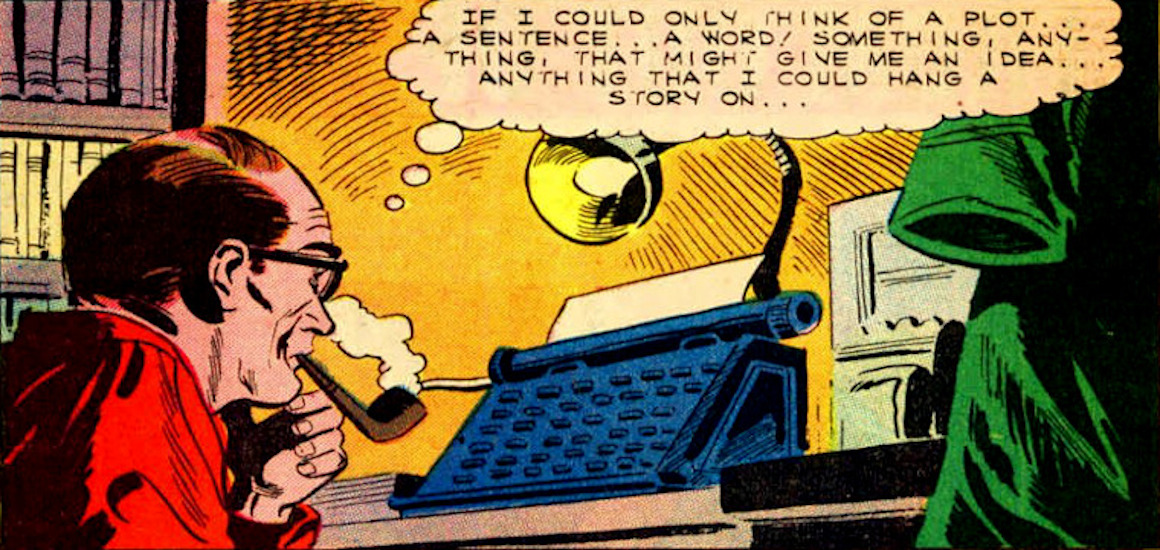Writers are a solitary breed. We hide in dimly lit rooms, our features cast into dramatic relief by the flickering monitor light as we continually tap tap tap our RSI addled fingers against besymboled (is that a word? It is now!) squares of plastic. This is where we live, undisturbed if we’re lucky – only rising and engaging with the wider world to make a sandwich or reheat old coffee from the gargantuan pot.
That part of us we force to the surface at parties and family gatherings, dancing on the coffee table after one too many whiskeys, is not us. We would much rather be alone with our thoughts, formulating ideas and developing prose. Left alone.
You may protest. You may disagree, convinced that you are the extroverted party animal, able to befriend large rooms of strangers in a single anecdote, with a social calendar too long to pin to the front of the fridge and a first name relationship with every barman in town. Yet I am convinced that all writers share a tendency for seclusion and introspection. We may hide this trait, we may construct a facade of ebullience, but a true writer dreams of those quiet early morning hours alone with their words and ideas.
Be honest! How many times have you been at a party, social gathering or similar occasion only to become distracted with an idea that enters your head. Suddenly, you’re not listening as much as you were, your mind already composing and preparing for the keyboard instead of exchanging pleasantries with Barry from accounts. How many times do you find yourself observing events and watching people, rather than being the centre of attention?
To be able to write effectively, there needs to be a part of us that wants to be on the outside, looking in. We can’t comment on the world if we don’t analyse, study and observe and we can’t do any of those things if we are at the centre of things.
So we end up slightly disconnected from our surroundings. Later, alone and shut away with half-formed plots and coalescing insights, wrestling with linguistic conundrums long after our partners have gone to bed, we make sense of our observations. How could an extroverted social whirlwind ever feel comfortable confined to a creaking office chair with only a flashing cursor for company? Who would choose that life unless they found comfort in blotting out the surrounding world and living inside the imagination for hours on end?
Leave me alone!
I work in a busy office for eight hours a day, writing articles, honing copy and crafting content. The challenge for me is staying focused with the continual interruptions that are unavoidable in an open-plan workspace. The phones, co-workers needing answers, the unending meetings!
Rarely do I find myself able to write more than a few sentences without an urgent email winking at me for immediate response or another task encroaching on my attention.
I resort to blocking out the distractions with movie soundtracks on the iPod, only for other members of the marketing team to end up waving at me furiously to distract my attention when they’re … Damn, how was that sentence going to end?
Good writing doesn’t happen in two-minute bursts. Stop-start creativity results in stilted, functional but bland copy.
Any writer will tell you that the first words they write in any creative session are rubbish. Those first few tentative paragraphs usually end up deleted, merely the warm-up exercises as the linguistic muscles began the workout.
It takes a while of plugging away, getting into the fabled “zone” before true creativity takes over, inspiration explodes and words begin to appear on the screen that you’re actually excited to read back.
So imagine the struggle when a writer doesn’t have the luxury of long periods of uninterrupted focus in which to reach that highly productive and inspired state?
This is why interruption – no matter how innocent or trivial – is like a bucket of cold water. We’re snapped out of the creative trance, the thoughts scattering in the harsh light to hide in the various dusty and cluttered niches of the mind. Trying to coax those ideas back out when we return to the screen can sometimes be frustrating. We know we were on the cusp of brilliance, of finding those few words that would elevate the prose to greatness. But they’re gone – lost; the vague impression of an idea left behind, taunting our imagination with the sense that whatever reaches the page now will not equal what could have been.
This is why writers are solitary creatures. This is why we stare into space and ignore those of you trying to catch our eye. This is why we sometimes don’t answer the phone when you know we’re at home. This is why the IT person who just sat next to me to discuss the marketing computer system as I was typing the last sentence got a very slow and disinterested response from me.
Damn, what was that perfect last line I was going to finish on? It was so much better than this one!
